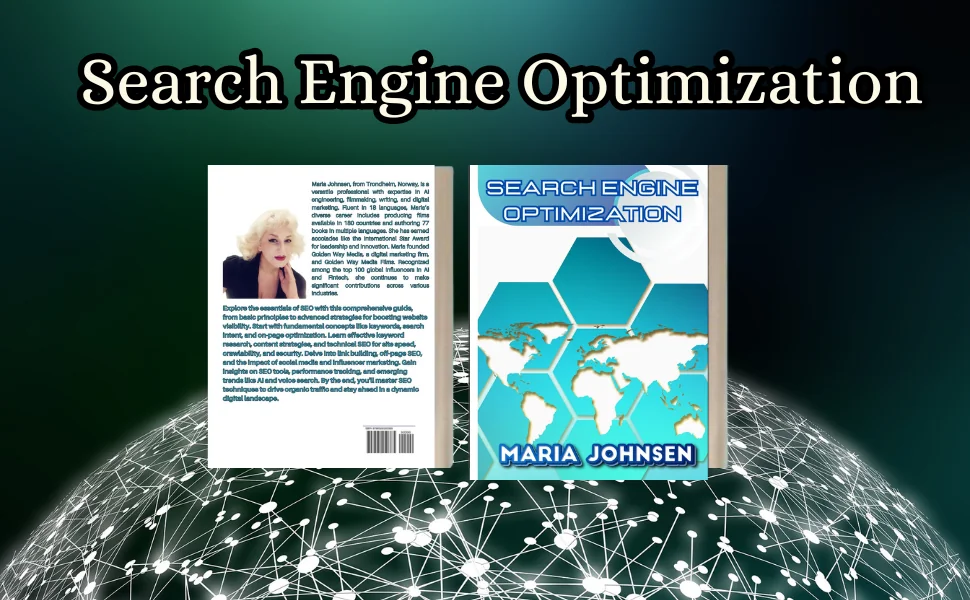Latest Advertising Strategies for Multilingual SEO Agencies

Multilingual SEO Agencies
In this article, I talk about multilingual SEO agencies. The digital marketing landscape has evolved significantly in recent years, and for multilingual SEO agencies, keeping pace with these changes is essential. As businesses continue to globalize and reach out to diverse audiences, the need for comprehensive and innovative advertising strategies grows stronger. A multilingual SEO agency faces the challenge of not only optimizing content across different languages but also targeting these varied audiences with localized, culturally relevant advertising strategies. Below, we explore the latest advertising strategies designed for multilingual SEO agencies, which include leveraging artificial intelligence, focusing on hyper-localization, voice search optimization, video marketing, and the integration of user-generated content (UGC).
Latest Advertising Strategies for Multilingual SEO Agencies in 2024
Leveraging Artificial Intelligence (AI) and Automation
Artificial intelligence is transforming the way digital marketers approach SEO and advertising, especially for agencies working in multiple languages. AI tools can streamline content creation, keyword research, and ad personalization, making them indispensable in today’s fast-paced environment.
For multilingual SEO agencies, AI helps in automating language translation and localization processes, ensuring that ads resonate with audiences in each language while maintaining cultural relevance. Machine learning algorithms can also optimize ad targeting by analyzing user behavior and preferences across different markets. This technology allows agencies to segment audiences more effectively and tailor ad campaigns that deliver personalized experiences, increasing the chances of conversion.
AI-powered chatbots and customer support are also gaining popularity. They provide real-time engagement with potential customers, regardless of their language. By integrating AI chatbots into websites or social media platforms, multilingual SEO agencies can offer 24/7 support, making the customer journey smoother and more efficient.
Hyper-Localization of Content
While localization has always been a critical aspect of multilingual SEO, hyper-localization takes it a step further by addressing the specific nuances, behaviors, and preferences of micro-regions. For instance, a French-speaking audience in Quebec will have different cultural touchpoints compared to French speakers in Paris. To achieve hyper-localization, agencies must delve deep into the local context, not just translating language but also understanding regional dialects, customs, idioms, and values.
Hyper-localized advertising campaigns are more likely to resonate with users because they feel tailored to their specific needs and preferences. This approach involves creating region-specific landing pages, geo-targeted ads, and locally relevant social media content. Additionally, leveraging local influencers can significantly enhance the authenticity of the campaign, as these influencers have a deeper connection with the target audience and can communicate in a way that resonates with local users.
Optimizing for Voice Search
Voice search is growing rapidly, with more users relying on smart speakers and voice-activated assistants to find information. This trend is even more pronounced in multilingual settings, where users may prefer using voice search in their native language. For multilingual SEO agencies, this means optimizing ads and content for voice search across multiple languages.
Voice search queries tend to be longer and more conversational than traditional text searches, so agencies should focus on targeting long-tail keywords and answering common questions that users might ask in different languages. Natural language processing (NLP) tools can help agencies understand the nuances of voice search queries, allowing them to optimize content and ad copy accordingly. Additionally, structuring content with FAQs or conversational language can improve visibility in voice search results.
Video Marketing and Multilingual Video Ads
Video continues to be a dominant form of content consumption worldwide, and multilingual SEO agencies should incorporate it into their advertising strategies. Video ads can break language barriers and engage audiences on a more emotional level. Multilingual video marketing campaigns must ensure that video content is not only translated but also culturally adapted to resonate with the target audience.
There are several ways agencies can approach multilingual video marketing. First, they can create subtitles or voiceovers in different languages for their video ads, ensuring that the message is consistent and understandable across regions. Alternatively, agencies can produce region-specific videos, featuring local actors or influencers to make the content more relatable. Moreover, interactive video content that encourages user engagement, such as clickable links or calls-to-action (CTAs) within the video, can drive conversions.
Platforms like YouTube, TikTok, and Instagram Reels offer agencies the opportunity to reach global audiences through localized video content. By tailoring video ads to specific languages and cultures, agencies can increase viewer retention and engagement, ultimately boosting the effectiveness of the campaign.
User-Generated Content (UGC) and Social Proof
User-generated content has become a powerful tool for brands to build trust and credibility. For multilingual SEO agencies, encouraging UGC from different regions and languages adds authenticity to their campaigns. When users see content generated by people in their local language, it fosters a sense of community and trust, making them more likely to engage with the brand.
UGC can include reviews, testimonials, social media posts, and even videos created by users. Agencies can incentivize users to create content by running contests or offering rewards for sharing their experiences with the brand. Featuring this content in localized ad campaigns can enhance social proof and credibility.
For instance, showcasing reviews or testimonials in multiple languages on a website or in ads can reassure potential customers from different regions that the brand is trusted by people like them. Additionally, incorporating UGC into paid advertising campaigns, such as Facebook or Instagram ads, can drive higher engagement rates.
Data-Driven Personalization Across Languages
Personalization has become a cornerstone of effective digital advertising, and multilingual SEO agencies need to adopt data-driven approaches to tailor ads for diverse audiences. By leveraging data analytics tools, agencies can gain insights into user behavior, preferences, and purchasing patterns across different regions and languages.
This data allows agencies to create personalized ad experiences that go beyond mere language translation. Instead, they can customize ads based on factors like local holidays, seasons, or even regional trends. Personalization can extend to email marketing campaigns, where localized content and offers are sent to specific segments of the audience, resulting in higher open rates and conversions.
The latest advertising strategies for multilingual SEO agencies focus on a combination of AI-driven automation, hyper-localization, voice search optimization, video marketing, UGC, and data-driven personalization. By staying ahead of these trends, multilingual SEO agencies can offer more targeted, relevant, and impactful advertising campaigns that cater to the diverse needs of global audiences.
Get a copy of my book Search Engine Optimization

